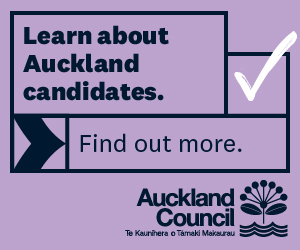
Auckland Council

Rates and revenue
The work of local government is funded mainly by property taxes in the local area, known as rates. This makes up around 60% of council expenditure, with the rest coming from user charges, investment income, regulatory fees and roading subsidies. Councils can also borrow money to spread the cost of large investments such as infrastructure over a longer period of time.

Rates and revenue
The work of local government is funded mainly by property taxes in the local area, known as rates. This makes up around 60% of council expenditure, with the rest coming from user charges, investment income, regulatory fees and roading subsidies. Councils can also borrow money to spread the cost of large investments such as infrastructure over a longer period of time.
Careful financial management of council's budget to maintain Auckland's AA/Aa2 credit rating and continue to find savings ($2.4 billion since 2010).
Increase sources of council funding, including return of GST or a bed tax, by working with government.
Introduce coastal occupation charges so that structures such as private marinas are required to pay rent for using the marine environment.
Take special care to avoid "budget blowouts", recognising that inflation will be a problem in 2022-23.
Ensure what the council invests in is of benefit to NZ and, if possible, to local Auckland businesses.
Review all fees and charges, eliminating and simplifying those whose reduction would benefit small businesses.
Hold rates to the rate of inflation.
Oppose sale of council's remaining income earning assets, parking buildings, Ports of Auckland and shares in Auckland International Airport.
Support and independent audit of council finances and procurement and how 20, mainly offshore, corporates received $10b over 10 years.
Have Auckland referendum on subsidising Waiheke long-term resident rentals using levy on short-term. Direct democracy, take median value.
Review funding for the New Zealand Transport Agency case for a second harbour crossing involving rail. Cyclists can take their bikes on this train or the ferry.
Have Auckland referendum on special infrastructure levy, take median value. Give suggestion – local capital gains tax until capital gains equal risk-free rate of return.
Careful financial management of council's budget to maintain Auckland's AA/Aa2 credit rating and continue to find savings ($2.4 billion since 2010).
Increase sources of council funding, including return of GST or a bed tax, by working with government.
Introduce coastal occupation charges so that structures such as private marinas are required to pay rent for using the marine environment.
Take special care to avoid "budget blowouts", recognising that inflation will be a problem in 2022-23.
Ensure what the council invests in is of benefit to NZ and, if possible, to local Auckland businesses.
Review all fees and charges, eliminating and simplifying those whose reduction would benefit small businesses.
Hold rates to the rate of inflation.
Oppose sale of council's remaining income earning assets, parking buildings, Ports of Auckland and shares in Auckland International Airport.
Support and independent audit of council finances and procurement and how 20, mainly offshore, corporates received $10b over 10 years.
Have Auckland referendum on subsidising Waiheke long-term resident rentals using levy on short-term. Direct democracy, take median value.
Review funding for the New Zealand Transport Agency case for a second harbour crossing involving rail. Cyclists can take their bikes on this train or the ferry.
Have Auckland referendum on special infrastructure levy, take median value. Give suggestion – local capital gains tax until capital gains equal risk-free rate of return.
Mayor
Compare the mayoral candidates in your area
Local council
Compare the candidates for your city or district council
Regional council
Compare the candidates for your regional council
Local board
Compare the candidates for your local or community board










